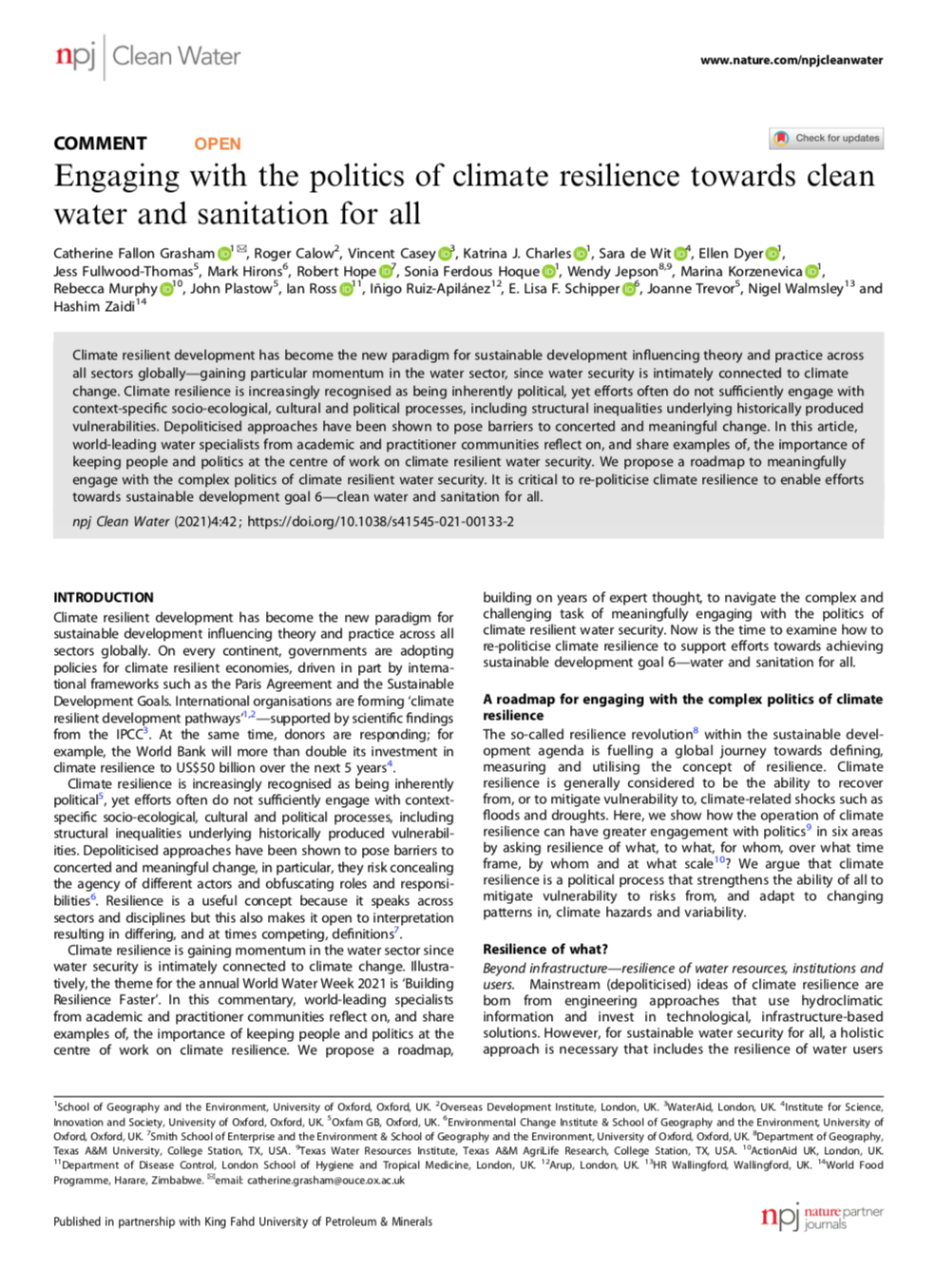Authors: Catherine Fallon Grasham, Roger Calow, Vincent Casey, Katrina J. Charles, Sara de Wit, Ellen Dyer, Jess Fullwood-Thomas, Mark Hirons, Robert Hope, Sonia Ferdous Hoque, Wendy Jepson, Marina Korzenevica, Rebecca Murphy, John Plastow, Ian Ross, Iñigo Ruiz-Apilánez, E. Lisa F. Schipper, Joanne Trevor, Nigel Walmsley and Hashim Zaidi
Climate resilient development has become the new paradigm for sustainable development influencing theory and practice across all sectors globally—gaining particular momentum in the water sector, since water security is intimately connected to climate change. Climate resilience is increasingly recognised as being inherently political, yet efforts often do not sufficiently engage with context-specific socio-ecological, cultural and political processes, including structural inequalities underlying historically produced vulnerabilities. Depoliticised approaches have been shown to pose barriers to concerted and meaningful change.
In this article, world-leading water specialists from academic and practitioner communities reflect on, and share examples of, the importance of keeping people and politics at the centre of work on climate resilient water security. We propose a roadmap to meaningfully engage with the complex politics of climate resilient water security. It is critical to re-politicise climate resilience to enable efforts towards sustainable development goal 6—clean water and sanitation for all.

